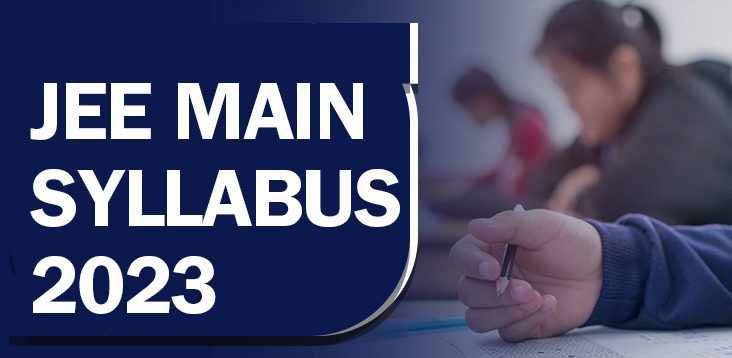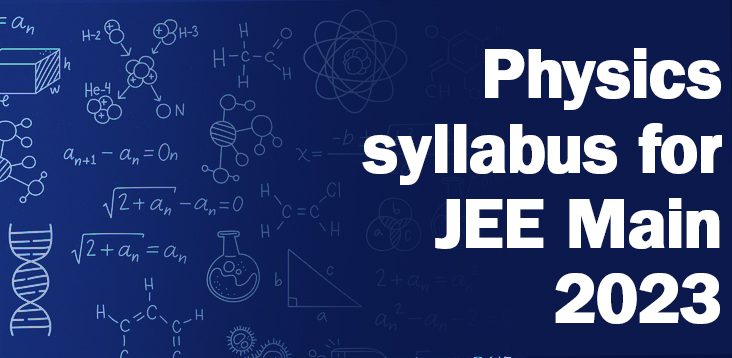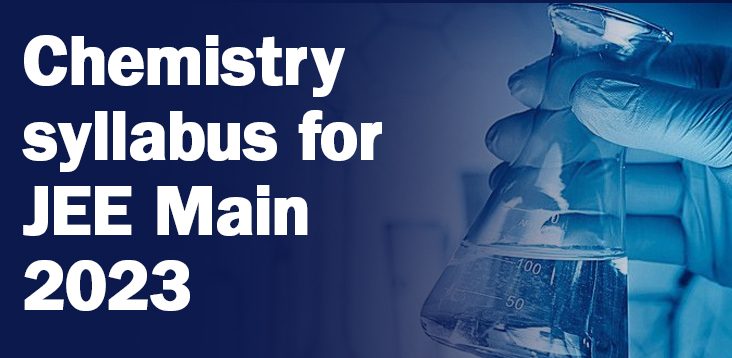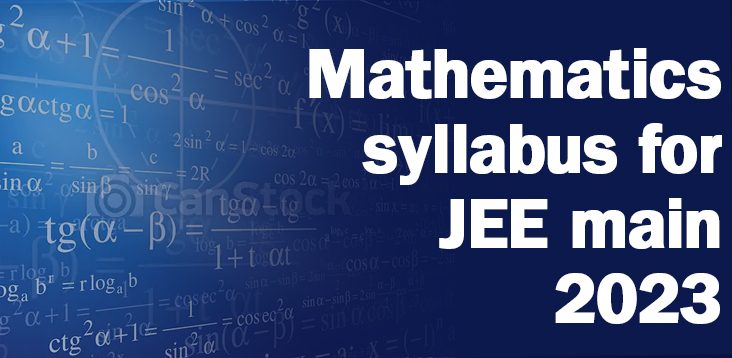JEE MAIN SYLLABUS 2023

JEE MAIN SYLLABUS 2023
JEE Main Syllabus 2023 is one of the most coveted and recognized exams, conducted twice every year for students who wish to make a carrier in different engineering courses like IITs, NITs, IIITs, and many other prestigious engineering institutes present for giving best engineering study for aspirants in our country. The exam is split into two parts namely, JEE Main and Advance, and is conducted in online mode.
The three-hour mains exam consists of 90 questions of which a total of 75 questions can be attempted for a sum total of 100 marks. The exam is conducted by the National Test Agency (NTA) and they regularly update the pattern and make necessary changes every year and also conducted in 2023 also.
The syllabus for the mains is based on the Class 11th and 12th curriculum of the Central Board of Secondary Education (CBSE). The exam demands a proper in-depth understanding of the topics and good practice with a large pool of questions on any particular topic to be able to solve the questions during the JEE main exam.
The subjects are Physics, Chemistry, and Mathematics, and they have a large number of subtopics inside them to prepare for.
In this article, we have provided a detailed breakdown of the entire JEE Main 2023 syllabus:

Physics syllabus for JEE Main 2023:
The physics section of JEE Main 2023 syllabus will cover a wide range of topics that include Mechanics, Thermal Physics, Electricity and Magnetism, Optics, Modern Physics, and Electronic Devices. Some of the key topics that students must focus on are:
- Laws of Motion
- Kinematics
- Work, Energy, and Power
- Gravitation
- Oscillations and Waves
- Properties of Solids and Liquids
- Thermodynamics
- Electrostatics
- Current Electricity
- Electromagnetic Waves
- Optics
- Dual Nature of Matter and Radiation
- Atoms and Nuclei
- Communication Systems
Chemistry syllabus for JEE Main 2023:

The chemistry section of JEE Main 2023 syllabus will be divided into three parts: Physical Chemistry, Organic Chemistry, and Inorganic Chemistry. Some of the key topics that students must focus on are:
Physical Chemistry
- Basic Concepts of Chemistry
- States of Matter
- Atomic Structure
- Chemical Bonding and Molecular Structure
- Chemical Thermodynamics
- Solutions
- Equilibrium
- Redox Reactions and Electrochemistry
- Chemical Kinetics
Organic Chemistry - Purification and Characterisation of Organic Compounds
- Hydrocarbons
- Organic Compounds Containing Halogens
- Organic Compounds Containing Oxygen
- Organic Compounds Containing Nitrogen
- Polymers
- Biomolecules
- Chemistry in Everyday Life
Inorganic Chemistry - Classification of Elements and Periodicity in Properties
- Chemical Bonding and Molecular Structure
- Hydrogen
- S-Block Elements
- P-Block Elements
- D and F Block Elements
- Coordination Compounds
- Environmental
Mathematics syllabus for JEE Main 2023:

- To excel in the Mathematics section of JEE Main 2023, students will need to prepare for a diverse range of topics. These include Sets, Relations and Functions, Complex Numbers and Quadratic Equations, Matrices and Determinants, Permutations and Combinations, Mathematical Induction, Binomial Theorem and Its Simple Applications, Sequences and Series, Limits, Continuity and Differentiability, Integral Calculus, Differential Equations, Coordinate Geometry, Three Dimensional Geometry, Vector Algebra, Statistics, and Probability.
- Sets, Relations, and Functions
- Complex Numbers and Quadratic Equations
- Matrices and Determinants
- Permutations and Combinations
- Mathematical Induction
- Binomial Theorem and Its Simple Applications
- Sequences and Series
- Limit, Continuity, and Differentiability
- Integral Calculus
- Differential Equations
- Co-ordinate Geometry
- Three Dimensional Geometry
- Vector Algebra
- Statistics and Probability
acc. It is also important to identify the areas of the topic’s weakness and to work hard on improving them.In addition to studying the syllabus,
Next


